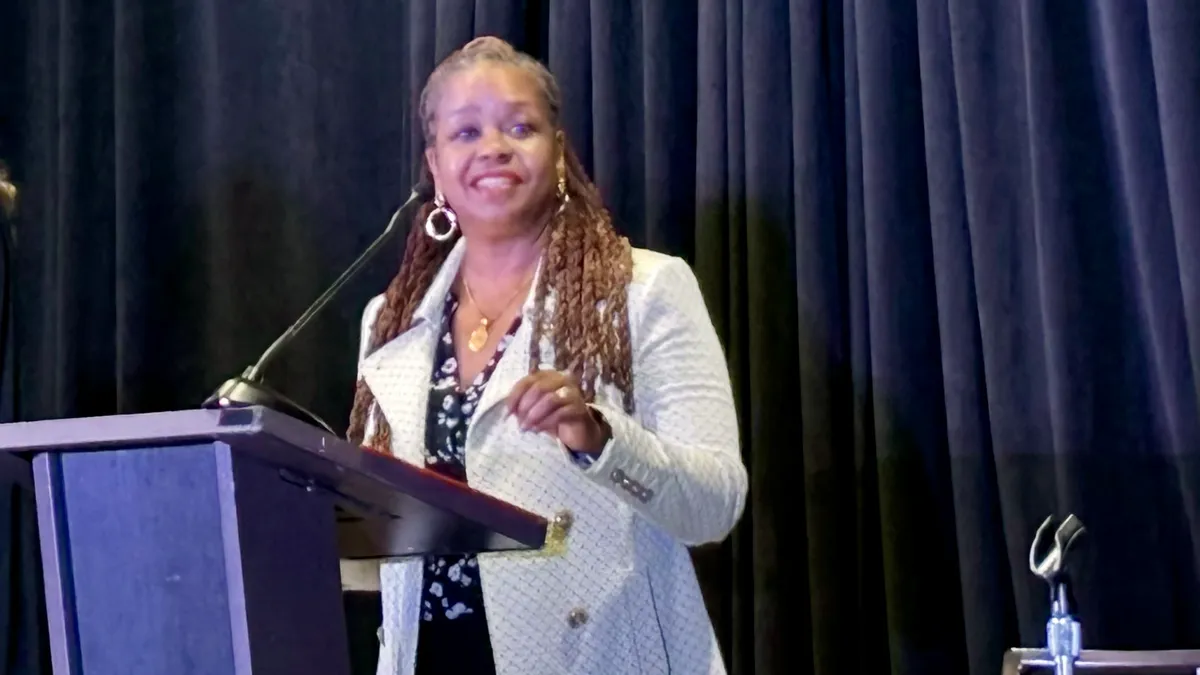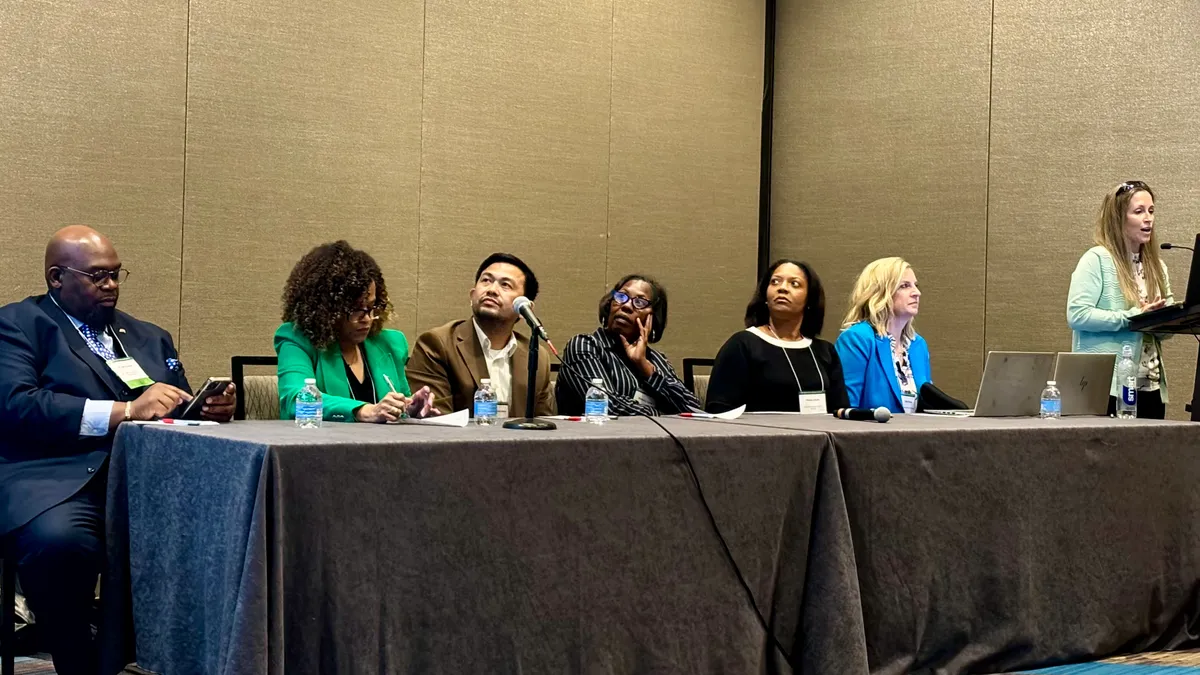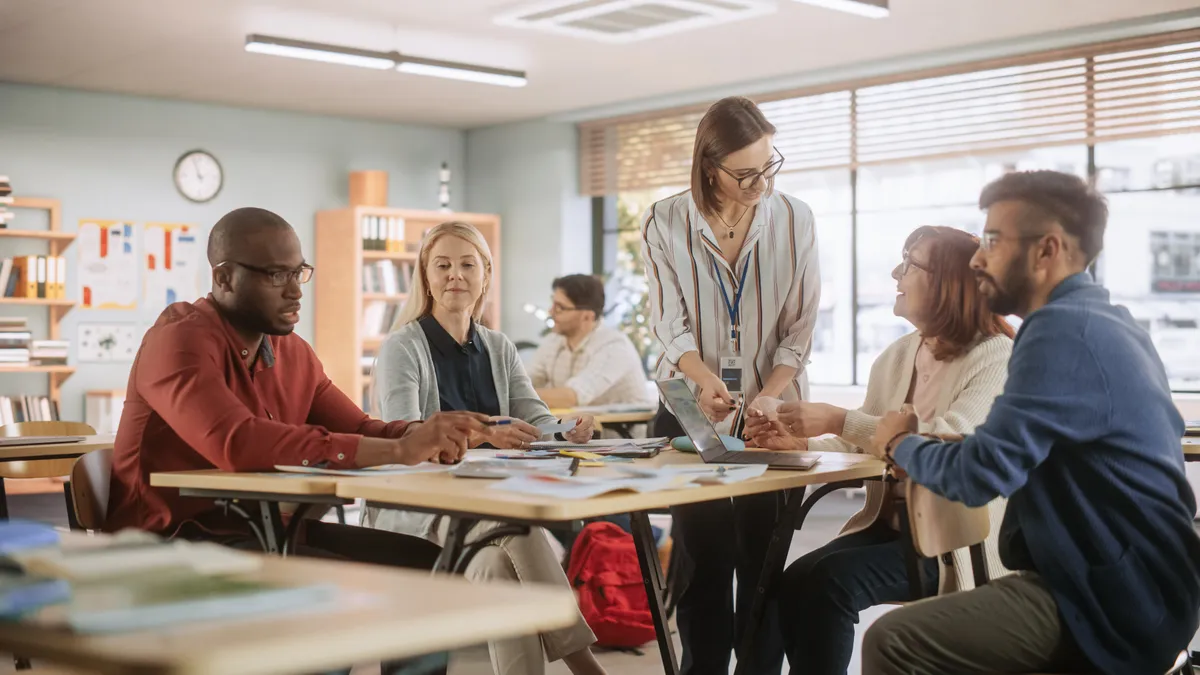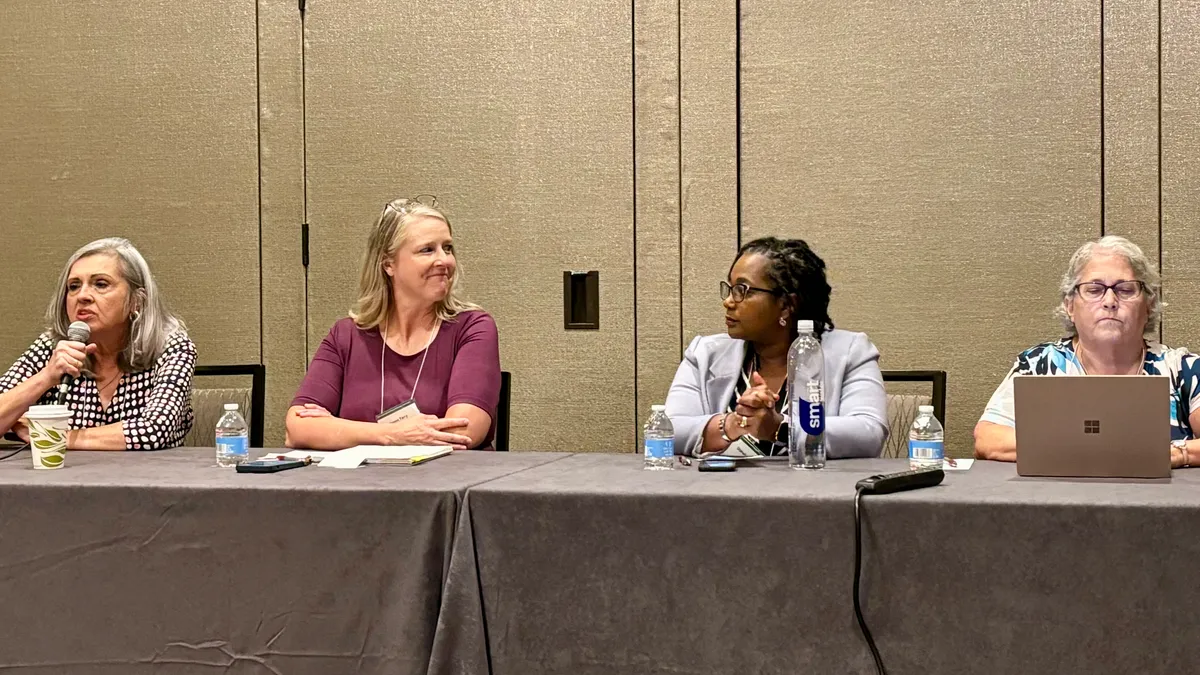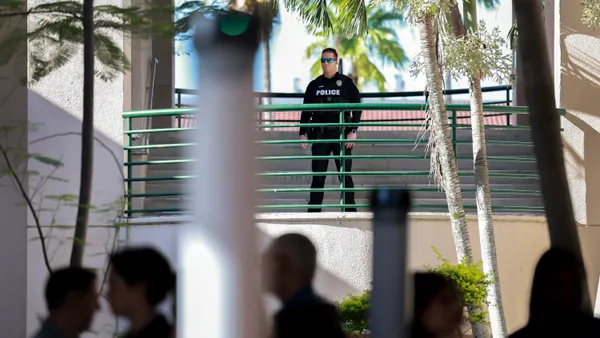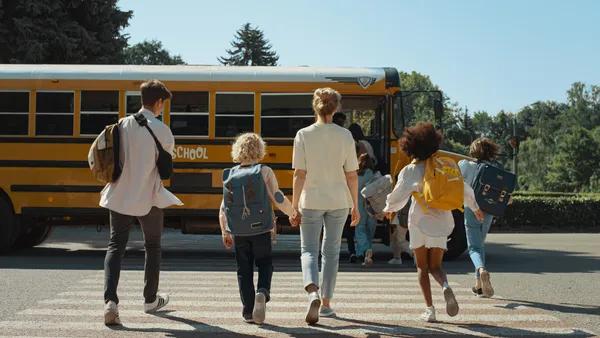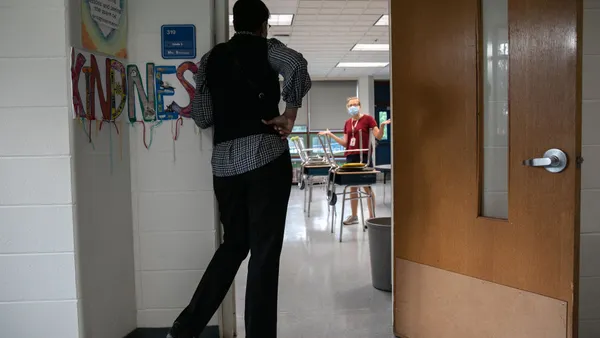ARLINGTON, Va. — Local and state school systems should replicate and scale evidence-based promising practices for students with disabilities, rather than use new and quick fixes, said U.S. Department of Education leaders at the opening session of the Office of Special Education Programs conference on Tuesday.
"So many solutions to what our students need are actually already out there," said Cindy Marten, deputy secretary of education. "They actually already exist, but they're not there in place at a systemic level every day for every child, in every school, in every classroom across our country."
Marten, a former superintendent of San Diego Unified School District, added, "If we know what works and we're doing it for some kids some days in some places, why not everywhere for every student every day."
Marten and other speakers acknowledged broad challenges to the special education field, including teacher shortages and classroom-based hurdles such as recognizing and managing dozens of students' individualized needs.
It can be hard work supporting students with disabilities, Marten said, but the special education field needs "systems of excellence — not just pockets of excellence."
About 1,900 special education professionals from all 50 states and many territories are attending this week's OSEP conference. During the opening session, speakers emphasized three practices for improving outcomes for students with disabilities.
1. Deliver academic rigor
OSEP Director Valerie Williams urged attendees to remove barriers to student success and to assume students with disabilities have academic strengths. That could include talking with young students about what they want to be when they grow up and preparing all students to be college and career ready.
"We have to continuously strive for systems improvement and increase our expectations of what we believe our children are capable of because they will surprise us if we give them a chance," Williams said.
She advised starting with the individualized education program process to ensure students are receiving personalized support for success in the general education classroom.
She further urged school systems to use data to make sure all student populations benefit from equitable learning opportunities.
Eliminating the teacher shortage and recruiting and retaining more school psychologists, counselors and related service providers will also help improve learning conditions for students, Williams said.
2. Have inclusive practices
Williams emphasized the need to include students with disabilities in general education classes — with proper support — and in schoolwide activities. "We know that putting children in a room with their peers without the proper supports … that's not really inclusionary practices," she said.
At Virginia's Annandale High School, part of Fairfax County Public Schools, educators have worked toward universal access to music, including implementing a music curriculum specifically for students with significant cognitive disabilities, according to Annie Ray, the school's director of orchestra and the performing arts department chair.
"Success can come from anyone, anywhere," said Ray, who received the 2024 GRAMMY Music Educator Award from the Recording Academy and the GRAMMY Museum. "You just need to give them a voice."
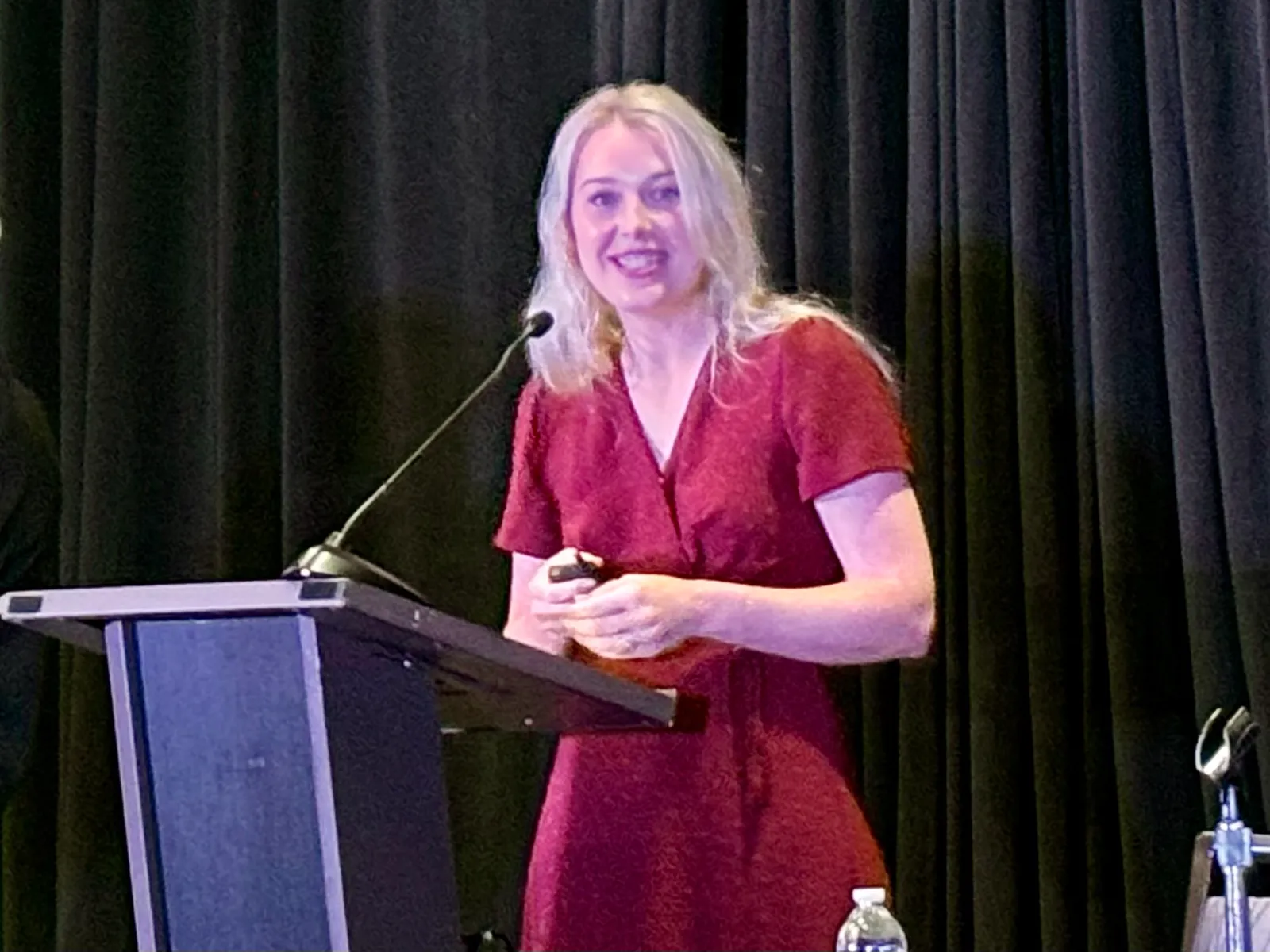
Ray credited the school for intentionally supporting inclusive practices and teacher innovation.
"Performing arts teachers are spread in so many different directions and are not given the training or the supports to allow meaningful inclusion that's beneficial to everyone," Ray said. "So please don't dismiss your performing arts teachers. Please just give them the supports that they need."
3. Take a team approach
Systemic improvement for special education comes from taking a team approach, speakers told conference attendees. Partners can include educators, administrators, technical assistance centers, parents, students, community organizations and others, they said.
According to Marten, the work isn't about checking boxes to show an issue was discussed or executed. Instead, it's giving careful consideration to evidence-based strategies with the potential to be scaled to reach more populations.
Having an equity-centered approach, for example, doesn't happen by accident or in silos, Marten said. "It happens by design, in collaboration with families and students' voices as well, at every decision-making table."
To help support music education and family engagement, for example, Ray started a parent orchestra to teach parents how to play the instruments their children were playing.
Now, one of her former students who participated in the orchestra program for students with severe disabilities joins her in the classroom as her instructional assistant.


